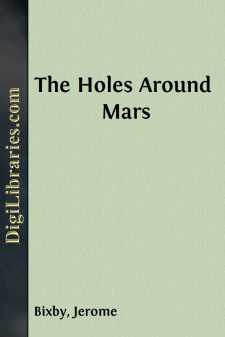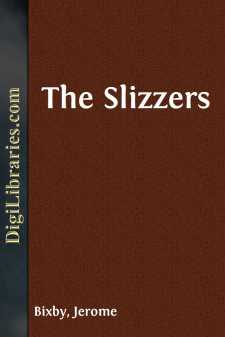Categories
- Antiques & Collectibles 13
- Architecture 36
- Art 48
- Bibles 22
- Biography & Autobiography 813
- Body, Mind & Spirit 142
- Business & Economics 28
- Children's Books 17
- Children's Fiction 14
- Computers 4
- Cooking 94
- Crafts & Hobbies 4
- Drama 346
- Education 46
- Family & Relationships 57
- Fiction 11829
- Games 19
- Gardening 17
- Health & Fitness 34
- History 1377
- House & Home 1
- Humor 147
- Juvenile Fiction 1873
- Juvenile Nonfiction 202
- Language Arts & Disciplines 88
- Law 16
- Literary Collections 686
- Literary Criticism 179
- Mathematics 13
- Medical 41
- Music 40
- Nature 179
- Non-Classifiable 1768
- Performing Arts 7
- Periodicals 1453
- Philosophy 64
- Photography 2
- Poetry 896
- Political Science 203
- Psychology 42
- Reference 154
- Religion 513
- Science 126
- Self-Help 84
- Social Science 81
- Sports & Recreation 34
- Study Aids 3
- Technology & Engineering 59
- Transportation 23
- Travel 463
- True Crime 29
The Holes Around Mars
by: Jerome Bixby
Description:
Excerpt
Spaceship crews should be selected on the basis of their non-irritating qualities as individuals. No chronic complainers, no hypochondriacs, no bugs on cleanliness—particularly no one-man parties. I speak from bitter experience.
Because on the first expedition to Mars, Hugh Allenby damned near drove us nuts with his puns. We finally got so we just ignored them.
But no one can ignore that classic last one—it's written right into the annals of astronomy, and it's there to stay.
Allenby, in command of the expedition, was first to set foot outside the ship. As he stepped down from the airlock of the Mars I, he placed that foot on a convenient rock, caught the toe of his weighted boot in a hole in the rock, wrenched his ankle and smote the ground with his pants.
Sitting there, eyes pained behind the transparent shield of his oxygen-mask, he stared at the rock.
It was about five feet high. Ordinary granite—no special shape—and several inches below its summit, running straight through it in a northeasterly direction, was a neat round four-inch hole.
"I'm upset by the hole thing," he grunted.
The rest of us scrambled out of the ship and gathered around his plump form. Only one or two of us winced at his miserable double pun.
"Break anything, Hugh?" asked Burton, our pilot, kneeling beside him.
"Get out of my way, Burton," said Allenby. "You're obstructing my view."
Burton blinked. A man constructed of long bones and caution, he angled out of the way, looking around to see what he was obstructing view of.
He saw the rock and the round hole through it. He stood very still, staring. So did the rest of us.
"Well, I'll be damned," said Janus, our photographer. "A hole."
"In a rock," added Gonzales, our botanist.
"Round," said Randolph, our biologist.
"An artifact," finished Allenby softly.
Burton helped him to his feet. Silently we gathered around the rock.
Janus bent down and put an eye to one end of the hole. I bent down and looked through the other end. We squinted at each other.
As mineralogist, I was expected to opinionate. "Not drilled," I said slowly. "Not chipped. Not melted. Certainly not eroded."
I heard a rasping sound by my ear and straightened. Burton was scratching a thumbnail along the rim of the hole. "Weathered," he said. "Plenty old. But I'll bet it's a perfect circle, if we measure."
Janus was already fiddling with his camera, testing the cooperation of the tiny distant sun with a light-meter.
"Let us see weather it is or not," Allenby said.
Burton brought out a steel tape-measure. The hole was four and three-eighths inches across. It was perfectly circular and about sixteen inches long. And four feet above the ground.
"But why?" said Randolph. "Why should anyone bore a four-inch tunnel through a rock way out in the middle of the desert?"
"Religious symbol," said Janus. He looked around, one hand on his gun. "We'd better keep an eye out—maybe we've landed on sacred ground or something."
"A totem hole, perhaps," Allenby suggested.
"Oh. I don't know," Randolph said—to Janus, not Allenby. As I've mentioned, we always ignored Allenby's puns. "Note the lack of ornamentation. Not at all typical of religious articles."
"On Earth," Gonzales reminded him. "Besides, it might be utilitarian, not symbolic."
"Utilitarian, how?" asked Janus....




